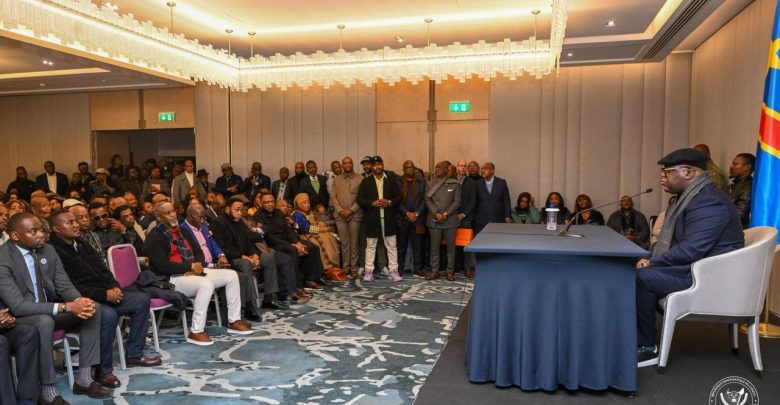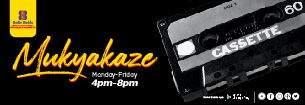
Tshisekedi last Thursday extended an unexpected hand of peace to his Rwandan counterpart, suspending calls for sanctions and urging direct dialogue to end years of bloodshed in eastern Congo.
The appeal, delivered during the Global Gateway Forum in Brussels, marked a striking departure from Tshisekedi’s previous hardline stance, in which he repeatedly threatened to attack Rwanda and support regime change in Kigali over alleged interference in Congo’s internal affairs.
Speaking to members of the Congolese diaspora in Brussels at the end of his visit to Belgium, Tshisekedi explained that his call for “la paix des braves” – the peace of the brave – was intended to show the world that Congo seeks peace despite being the victim of external aggression.
“I extended my hand to the one who represents the forces that are attacking the Democratic Republic of Congo, to take the whole world as witness,” Tshisekedi said.
Responding to critics who accused him of appearing soft toward Kigali, Tshisekedi insisted that his diplomatic overture was a calculated move rooted in confidence, not compromise.
“Believe me, I am far from being weak,” he declared.
“I have proven it several times. If today we are talking about sanctions, and about the processes of Washington, Doha, Lomé, and Luanda, it is in part because of what I have done.”
The Congolese leader described his outreach as an act of statesmanship intended to unmask manipulation and double standards surrounding the conflict in eastern Congo, where his government accuses Rwanda of backing the M23 rebellion — allegations Kigali denies.
“Knowing how to make peace like brave men is a gesture of nobility,” Tshisekedi said.
“This strategy has exposed what was hidden behind all this manipulation.”
He also criticized internal political actors who, he said, misuse calls for dialogue to undermine national unity.
“We want dialogue among Congolese — those who stand together against this aggression,” Tshisekedi said.
“The only thing I ask of them first is to condemn the aggressor and name him clearly.”
However, Rwanda sharply dismissed Tshisekedi’s peace gesture. In a statement posted on X, Presidential Press Secretary Stephanie Nyombayire accused the Congolese leader of hypocrisy and political theatre.
“The President of the DRC chose a global stage in Brussels today to prove the age-old saying: le ridicule ne tue pas,” Nyombayire wrote.
“Putting shame aside, he asserted his peace-loving nature, forgetting the many times he threatened to invade Rwanda and overthrow its leadership. Followed this with his favorite act: claiming victimhood of the very conflict he caused and has refused to resolve.”
Rwanda responds
Nyombayire went on to list what she called the “real face” of Tshisekedi’s so-called arm of peace, accusing him of arming the FDLR – a UN-sanctioned genocidal militia – integrating them into the Congolese army, supporting ethnic-based militias, and sabotaging international peace efforts. She also alleged that the DRC had “hired mercenaries” and “scapegoated Rwanda for its internal failures.”
Quoting President Kagame, Nyombayire added: “There is no use arguing with those who have repeated their lies long enough, they have come to believe them. There are no lessons Rwanda needs to be taught about the meaning of peace – those of us who have fought for peace know its price.”
Tshisekedi’s comments and Rwanda’s sharp rebuttal underscore the deep mistrust that continues to define relations between Kinshasa and Kigali, despite recent diplomatic overtures.
The DRC leader’s gesture in Brussels, aimed at demonstrating moral and diplomatic strength, has instead reignited a war of words, highlighting the fragile nature of efforts to end one of Africa’s most enduring conflicts.
By ChimpReports













